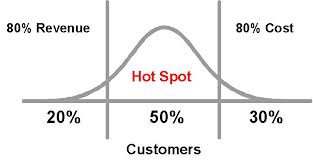 On Monday, Dani Robbins’ Non Profit Evolution blog started off with these words, “The best advice I ever got as a nonprofit CEO was . . .” Since reading those words, I’ve had a delightful dinner with Dani at a great Indian restaurant in Columbus, Ohio, and we talked a lot about those days when we were both young non-profit executive directors.
On Monday, Dani Robbins’ Non Profit Evolution blog started off with these words, “The best advice I ever got as a nonprofit CEO was . . .” Since reading those words, I’ve had a delightful dinner with Dani at a great Indian restaurant in Columbus, Ohio, and we talked a lot about those days when we were both young non-profit executive directors.
For some reason, I can’t get the words from her Monday blog post out of my head. Every moment that my mind gets a chance to wander, it comes back to a simple question, which is “What was the best advice I ever got as a non-profit CEO?”
Honestly, there was so much advice that at times it felt overwhelming. EVERYONE had an opinion because EVERYONE thought they knew how to do my job. I believe this is a cross that every nonprofit executive director must bear.
Of course, there was someone in my life who could do my job because he had done it before. His name was Fred Paulke, and he was previously my executive director at another agency.
I bring Fred into the conversation because there are two great pieces of advice that Fred gave me, and I can’t decide which one is “the best“.
The first piece of advice was to stop “over promising and under delivering.”
Fred did a resource development audit for me, and one of his findings was that I had a tendency as a young executive director to over promise and under deliver to board members and donors.
Embarrassing? Ummmmm . . . yeah!
However, true friends tell you when you have a bugger hanging off the tip of your nose. Am I right?
So, the best advice I may have ever received is “STOP DOING THAT!”
In fact, I believe the advice was to “find ways to reverse this habit and start under promising and over delivering.”
Simply put, every time you under deliver you’re eroding your credibility. If you do this enough times, board members and donors will cease believing you when you tell them that you will do something for them by a certain time.
Additionally, being late with something that you promise a board member or donor (or anyone really) is nothing short of: 1) poor customer service, 2) poor stewardship, and 3) unprofessional.
Truth be told? I still struggle with this today. This simple idea turns out to be not so simple.
Do you also struggle with over promising and under delivering? Don’t quickly dismiss this question. Give it some thought.
- Do you tell board members that you will have board materials out one week in advance and actually get it into their hands three or four days in advance?
- Do you tell donors that you will get their gift acknowledgement letters in the mail within 24 hours of receiving their contribution and actually take two or three days after a big event?
- Do you intend to publish your newsletter quarterly and actually only get around to it twice a year?
- Does your website and Facebook page go weeks or months without getting fresh content?
I suspect that many of us struggle with this issue, and it isn’t because we’re bad people. I think most of us are eager to please and want to do good.
If you struggle with over promising and under committing, you may want to check out Tiffany deSilva “Seamless Success” blog post titled “Overwhelmed? You Might be Over-Promising and Under-Delivering“. She has a few simple tips to help you knock it off.
The other great piece of advice Fred gave me when I was a young executive director was this:
- 10% to 20% of the people you meet and work with are going to love you (and will likely love you through thick and thin);
- 10% to 20% of the people you meet and work with are going to be critics (and will likely never like you or what you’re doing)
- There will be 60% to 80% of the people with whom you meet and work that don’t have any opinion of you and your work. They are a blank slate and persuadable (at least in the very beginning of your relationship).
Fred explained that it would be really easy to spend all of my time with the people who love me. Who doesn’t love a “love feast”??? It also would be really easy to spend all of my time trying to win over the critics.
If you are interested in getting the best return on investment on your time, his advice was to focus on those in the middle. Doing so is a sure-fire recipe for success.
The reason I love this advice is because the moral to the story pertains to how important it is for executive directors (and really anyone) to prioritize their time, energy, and resources.
So, what is the best advice you’ve ever received as a non-profit executive, fundraising professional, or non-profit volunteer? Do you have tips to share on how not to over promise and under deliver? Do you have best practices on prioritizing your time? Please pay-it-forward today by sharing your thoughts in the comment box below.
Here’s to your health!
Erik Anderson
Founder & President, The Healthy Non-Profit LLC
www.thehealthynonprofit.com
erik@thehealthynonprofit.com
http://twitter.com/#!/eanderson847
http://www.facebook.com/eanderson847
http://www.linkedin.com/in/erikanderson847


